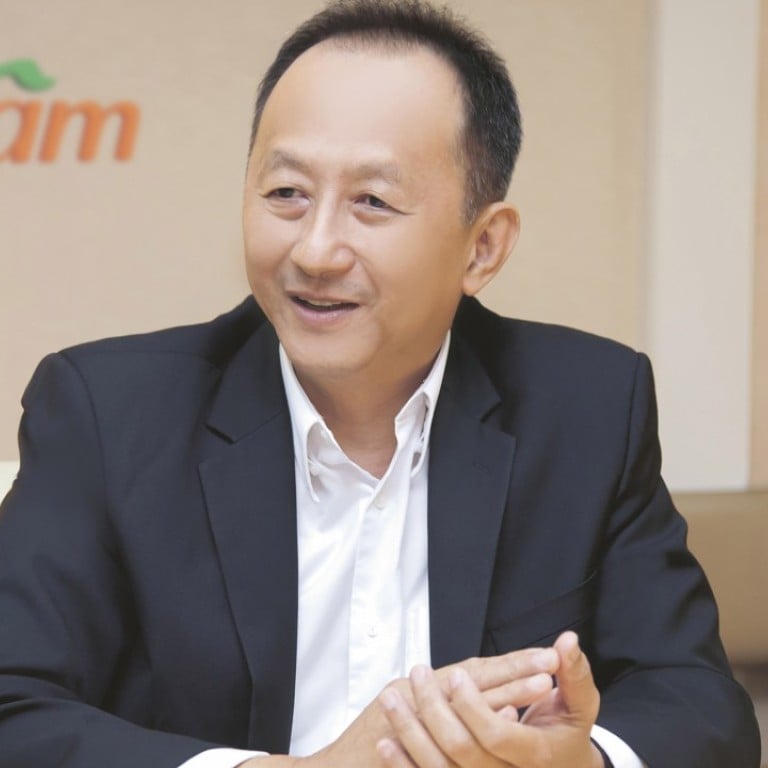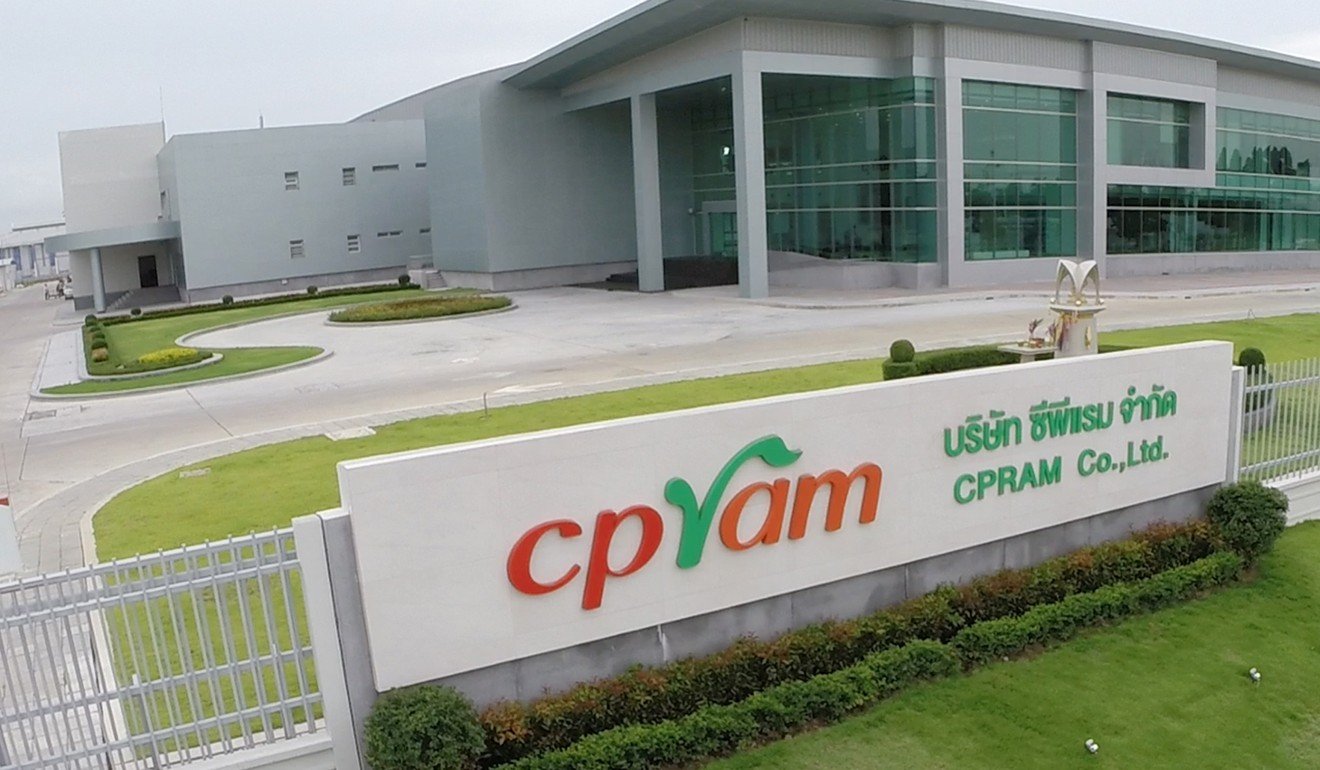
CPRAM elevates ready-to-eat food with high-quality products, innovation and sustainability
A subsidiary of Charoen Pokphand Group, CPRAM will apply biotechnology in developing special and healthy food such as food for the elderly, children and diabetics
Country Business Reports interviews and articles by Discovery Reports www.discoveryreports.com
Home to seven of the world’s 50 best foods, according to an article published last year in CNN’s Travel section, Thailand is considered by many to be a food paradise. With its perfectly balanced hot and sour tom yum, savoury pad thai, and creamy spicy green curry, Thailand is a country bursting with rich and decadent dishes. Hailing from a place with such a rich gastronomic heritage, CPRAM, Thailand’s largest ready-to-eat food producer and distributor, has elevated the production of ready-to-eat food with its deep understanding of how to utilise ingredients to bring out the best flavours.
For CPRAM, succeeding in the highly competitive food industry is made possible by focusing on what customers want.
“We strive for three things in our products to satisfy our customers. First is food safety, which starts from the selection of good quality raw materials to hygienic food processing. Second is nutritional value – meaning it should not be junk. Third is it should offer pleasurable eating experiences so it must be appetising and delicious,” says president Wisade Wisidwinyoo.
CPRAM manufactures chilled and frozen food products for local consumption and for export to international markets. With its nutritious dishes cooked and frozen to preserve freshness, the company makes meal preparations more convenient as its products can be heated up in microwave ovens. Under this segment, CPRAM markets products under the Jade Dragon, DeliThai and Delicasia brands.
Jade Dragon is CPRAM’s take on Chinese cuisine. With Jade Dragon’s ready-to-eat products, there is no more need to slave for hours in front of a hot steamer just to enjoy dimsum. Showcasing its food innovation, CPRAM has even developed a special package and a type of bun that stays warm and juicy even within 30 minutes – making it an ideal hearty meal for people on the go.
CPRAM showcases Thai cuisine with its products under the DeliThai brand. With its conveniently packaged food products such as flagship products tom yum koong and chicken green curry, stir-fried pork with basil, and fried noodles Thai style with prawn, customers from all over the globe get to taste authentic Thai dishes in the comforts of their homes or workplaces.
Under the Delicasia brand, the company offers a fusion of Thai and Asian flavours in dishes such as spicy pork spaghetti, cheese pork croissant and spaghetti ham sauce.
CPRAM also specialises in bakery products. Under the brand Le Pan, the company sells sandwiches, buns, rolls and other baked goods. Seeing bread as more than just an appetiser or dessert, CPRAM bakes Le Pan products with delicious stuffings and fillings to serve as a substantial alternative to full rice meals.
The company also provides catering services through the business arm CPRAM Catering. Under this, the company offers food sets and snack boxes.
“We listen to the voices of our customers and our partners at all times, and we research to understand their insights and translate them into action. Aside from the taste and type of food, we also study buying patterns to give the best service to our customers. The latent need now is to find what is still hiding inside our customers,” Wisade says.

Moving forward with technology
CPRAM is a subsidiary of Charoen Pokphand Group, a renowned leader and innovator in the food business turned conglomerate with businesses ranging from retail, telecommunication and media, e-commerce and digital, property development, and plastics to automotive, finance and insurance, and pharmaceutical. Backed by the extensive expertise of its parent company, CPRAM has developed a strong innovative spirit that guides its day-to-day operations.
Being in the food industry does not stop CPRAM from turning to technology to drive forward innovations. The company even established an innovation programme 10 years ago to encourage the creation of new ideas in the company. It offers incentives to employees who can present original ideas. Under the programme, there are several innovator levels with corresponding rewards. CPRAM has 400 registered innovators.
“We have a big innovation culture in CPRAM. Innovation means that we are reborn, that we have new cells in our body that make us stronger and competitive. We believe that even the perfect product or idea still has room to improve. We improve not only our products, but our service, our management and other aspects of the company,” Wisade says.
Aside from the CPRAM Innovation Centre, the company has designated its biotechnology team to establish CP Food Lab in Food Innopolis, a global food and innovation hub in Thailand Science Park focusing on research development and innovation for the food industry. Surrounded by thought leaders and innovators, the company has found a nurturing research environment to incubate its ideas.
CPRAM will apply biotechnology in developing special and healthy food such as food for the elderly, children and diabetics. It will also apply robotic technology to work together with the automation production process for the heavy-duty and risky processes.
A research-driven company, CPRAM focuses on three areas that will drive its continuous growth: biotechnology, digital technology and factory automation.
Our people work alongside robots in the factory. We incorporate digital technology in our food processes
“You can say that our Chonburi factory is one of the most modern factories in the food industry in Thailand. Our people work alongside robots in the factory. We incorporate digital technology in our food processes. Our work on these three areas helps us serve customers better,” Wisade says.
CPRAM is expanding and upgrading its facilities in the existing factory locations, which are Chonburi, Khon Kaen and Bo-Ngern at Pathum Thani. Moving further away from Bangkok, the company is also building new factories in Lamphun and Surat Thani.
The move to establish new factories is aimed at being closer to customers in delivering unparalleled freshness. As CPRAM produces fresh food every day, outlets such as 7-Eleven also receive the products daily.
In five years, CPRAM envisions its total number of factories will increase the company’s current capacity by as much as 70 per cent. With the bigger capacity, the company can also strengthen its original equipment manufacturing services in providing raw and semi-cooked materials.
Abiding by international standards
Since quality is of the utmost importance for CPRAM, the company enforces strict quality standards. Its bakery and dimsum businesses comply with ISO 9001 standards. Its environmental management system is ISO 14001-certified, and its occupational health and safety management system is OHSAS 18001-certified.
With Europe being one of its important markets, CPRAM believes it is equally important for it to gain accreditation from the British Retail Consortium Global Standards.
“During the first five years of our operations, we already started meeting international regulations. Not only do we have high standards when it comes to our food products, we also have high management standards,” Wisade says.
CPRAM’s strict adherence to international standards has provided a solid foundation for the company to enter the global market. Aside from exporting to Britain, the company sells its products in Belgium, Germany and Switzerland. It also markets its products in Canada, Australia, Japan, Myanmar, Laos, Cambodia, Vietnam, Singapore and China.
CPRAM anticipates great expansion opportunities in Asia, especially as economies in the region continue to grow stronger.
“I can see the development of the economies in the region because people now come to the city more and more. Urbanisation is very fast, so there are still a lot of opportunities to provide good food for the people who live in the city,” Wisade says.
A particularly interesting market for CPRAM is China, where the company is eyeing the opening of a factory. Not only will CPRAM be closer to its clients, the company will also have better access to raw materials endemic in China.
“We expanded our market to Phnom Penh and we shipped products from Bangkok. Our products were very well received. In expanding our market, it’s a good move for us to expand our factories to the region in Thailand,” Wisade says.
CPRAM also welcomes partnerships with companies that can extend its sales network. It is looking for distributors with connections to retail stores, convenience stores and wholesale stores. The company is also open to working with organisations that can contribute to furthering CPRAM’s research initiatives.
Aims for sustainable organisation
CPRAM and its partners are cooperating to provide “nice and smart things” to consumers and society. All related partners, from upstream to downstream, play important parts in meeting market needs. The company calls this “supply chain”, where it delivers “nice and smart things” through the 3Ss of food: safety, security and sustainability. Because not all people have access to the 3Ss, CPRAM builds the chain to ensure their delivery to everyone.
